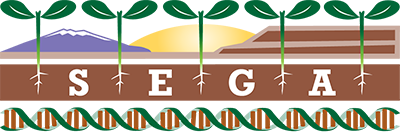You are here
Plant-soil microorganism interactions: heritable relationship between plant genotype and associated soil microorganisms.
Publication Type:
Journal ArticleSource:
Ecology, Volume 89, Issue 3, p.773 - 81 (2008)ISBN:
0012-9658URL:
http://www.ncbi.nlm.nih.gov/sites/entrez?Db=pubmed&DbFrom=pubmed&Cmd=Link&LinkName=pubmed_pubmed&LinkReadableName=Related%20Articles&IdsFromResult=18459340&ordinalpos=3&itool=EntrezSystem2.PEntrez.Pubmed.Pubmed_ResultsPanel.Pubmed_RVDocSumhttp://www.ncbi.Keywords:
Biomass, Crosses, Genetic, Ecosystem, Fatty Acids, Genetic Variation, Genotype, Host-Pathogen Interactions, Phospholipids, Plants, Soil Microbiology, Species SpecificityAbstract:
<p>Although soil microbial communities are known to play crucial roles in the cycling of nutrients in forest ecosystems and can vary by plant species, how microorganisms respond to the subtle gradients of plant genetic variation is just beginning to be appreciated. Using a model Populus system in a common garden with replicated clones of known genotypes, we evaluated microbial biomass and community composition as quantitative traits. Two main patterns emerged. (1) Plant genotype influenced microbial biomass nitrogen in soils under replicated genotypes of Populus angustifolia, F1, and backcross hybrids, but not P. fremontii. Genotype explained up to 78% of the variation in microbial biomass as indicated by broad-sense heritability estimates (i.e., clonal repeatability). A second estimate of microbial biomass (total phospholipid fatty acid) was more conservative and showed significant genotype effects in P. angustifolia and backcross hybrids. (2) Plant genotype significantly influenced microbial community composition, explaining up to 70% of the variation in community composition within P. angustifolia genotypes alone. These findings suggest that variation in above- and belowground traits of individual plant genotypes can alter soil microbial dynamics, and suggests that further investigations of the evolutionary implications of genetic feedbacks are warranted.</p>
- Log in to post comments
- Google Scholar
- RTF
- EndNote XML
- RIS
Theme by Danetsoft and Danang Probo Sayekti inspired by Maksimer
